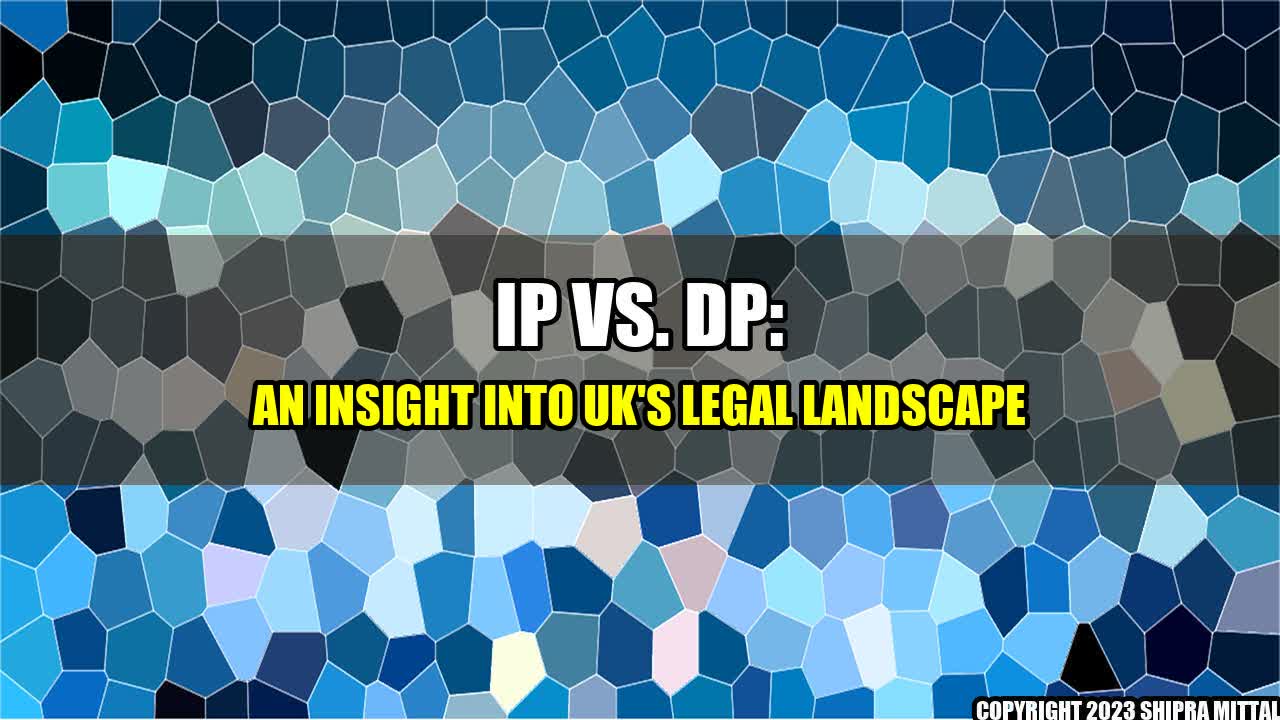It was the summer of 2015. Joe, an aspiring entrepreneur, had just launched his startup, an online marketplace that connected farmers directly with consumers. To distinguish his business from the competition, Joe had come up with a unique logo and a catchy slogan. He proudly displayed them on his website and social media channels. Everything seemed to be going great until one day, he received a cease and desist letter from a law firm representing a well-known supermarket chain.
The letter accused Joe of infringing on the supermarket's intellectual property rights by using their trademarked colours in his logo and a similar slogan. Joe was devastated. He had no idea that using colours and slogans could potentially land him in legal trouble. He consulted with a solicitor who advised him to rebrand his business and start from scratch. Joe lost a significant amount of time and money due to his lack of knowledge about intellectual property and data protection laws.
This story is not unique. Many startups and small businesses in the UK often find themselves entangled in legal disputes related to intellectual property (IP) and data protection (DP). While IP and DP are two distinct legal areas, they often overlap and can create confusion for entrepreneurs who are unfamiliar with the relevant laws.
In this article, we will explore the complexities of IP and DP laws in the UK and provide some real-life examples to illustrate their impact on businesses.
IP: Protecting Your Creative Works
Intellectual Property (IP) refers to the legal rights that protect the creations of the human mind such as inventions, literary and artistic works, symbols, names, and images used in commerce. The main types of IP protection in the UK are:
- Patents: Protects inventions and new technologies
- Trade Marks: Protects brands, logos, and other distinctive signs used in commerce
- Copyrights: Protects original works of authorship such as books, music, software, and films
- Design Rights: Protects the aesthetic and visual design of manufactured products
Without adequate IP protection, businesses can face the risk of losing their competitive edge, reputation, and revenue. As an example, let's take the case of Nestle's four-fingered KitKat. In 2014, Nestle lost its legal battle to trademark the shape of its popular chocolate bar in the UK. The reason? The court ruled that the shape was not distinctive enough to justify a trademark. This decision meant that other confectionery companies could use similar shapes and packaging, potentially diluting KitKat's brand value and market share.
Another real-life example is the case of Dyson and Samsung. In 2013, Dyson successfully sued Samsung for infringing on its patented technology used in vacuum cleaners. Samsung had copied Dyson's patented designs and used them in their own products. As a result, Dyson was awarded ÃÂã4.6 million in damages and set a precedent for future infringement cases.
DP: Protecting Personal Data
Data Protection (DP) refers to the legal obligations that businesses have to protect the personal data of their customers, employees, and other stakeholders. The main legislation regarding DP in the UK is the General Data Protection Regulation (GDPR) and the Data Protection Act 2018. These laws set out the principles and obligations for collecting, processing, and storing personal data.
Failure to comply with DP laws can lead to severe consequences for businesses, including fines, legal action, and loss of reputation. In 2018, Facebook faced a major data breach scandal that affected over 50 million users worldwide. The incident led to a widespread distrust of the social media giant's data privacy policies and resulted in a ÃÂã500,000 fine by the UK's Information Commissioner's Office (ICO).
Another example is the case of TalkTalk, a UK-based telecom company that suffered a data breach in 2015. Hackers stole the personal data of over 157,000 customers, including their names, addresses, and bank details. The company was fined ÃÂã400,000 by the ICO for failing to implement adequate security measures and protect its customers' data.
Conclusion
The legal landscape of IP and DP in the UK can be complex and overwhelming for businesses, especially startups and small enterprises. However, it is essential to understand the legal frameworks and obligations to avoid costly disputes and penalties. In summary, we can draw the following critical points:
- IP protection is crucial to safeguard a business's creations, brand, and market position
- DP compliance is essential to protect the personal data of customers and employees and mitigate the risk of breaches and fines
- Consulting with legal experts and taking proactive measures can help businesses navigate the legal landscape successfully
References and Further Readings
- Gov.uk - Intellectual Property
- ICO - Guide to Data Protection
- The Guardian - Facebook Fined ÃÂã500,000 by UK Data Regulator
- BBC - TalkTalk Fined Record ÃÂã400k over Cyber-Attack
Hashtags and SEO Keywords
- #IPvsDP
- #UKLegalLandscape
- #IntellectualProperty
- #DataProtection
- #SmallBusinessChallenges
- #StartupLegals
Category
Legal & Business

Akash Mittal Tech Article
Share on Twitter
Share on LinkedIn